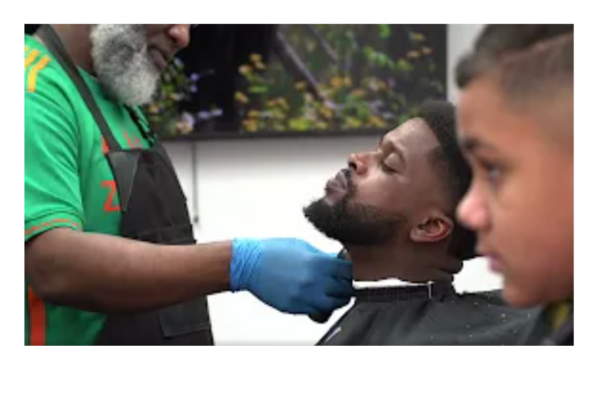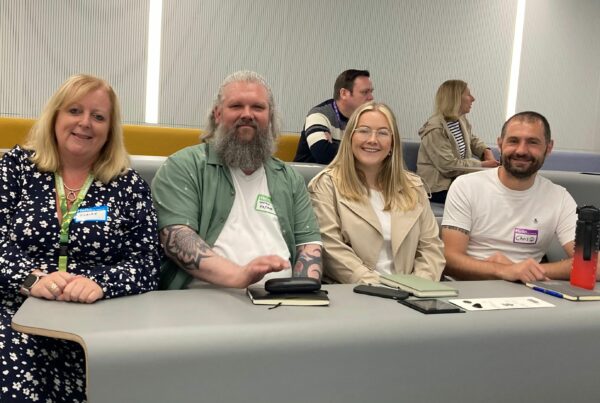23rd September 2024 is Bisexual Visibility Day.
As a mental health charity, we celebrate and observe the annual awareness event. We do this because we know that being proud of who you are – whoever you are, and whoever you love – can play a big part in helping our mental wellbeing.
We also know that the discrimination that still happens means that we in the LGBTQIA+ community are at greater risk of mental health difficulties. In fact, we’re two to three times more likely than straight people and/or people who identify to the gender given to them at birth.

Bisexuality can come with its own unique challenges, including bi erasure, which means people questioning or denying the existence or legitimacy of bisexuality.
In this blog, we’re lucky to have someone share their experiences and thoughts with us, about their bisexuality and how it impacts on their mental wellbeing.
The Hidden Sexuality
“For this Bisexual[1] Awareness Day, I offered to write a blog. I’m now questioning why, as in doing so, I risk exposing my own sexuality. Very few people are aware both at work and in my personal life.
However, having spoken to a number of peers who have also mentioned their own partially hidden sexuality, it feels right to write something to raise awareness of the often-hidden sexuality of the LGBTQIA+ world.
Time and again, sexuality is assumed. Sometimes this is part of the wider heteronormative[2] narrative, whereby most people assume people to be straight unless otherwise told or some kind of outward expression of sexuality stereotype is conformed to. Beyond this very initial basis sexuality is then further assumed based on other cues picked up on. A mention of a husband, wife, boyfriend or girlfriend (whether current or past) will often be the main clue once someone is known to us as to their sexuality. For bisexual people this in itself is a big problem. If I am a man, in a relationship with a man, I am assumed gay. If I am a woman in a relationship with a man, I am assumed straight. If I am a non-binary person in a relationship with either gender you will likely assume my sexuality based on my outwards expression of gender to fit your own norms (which by the way is totally not cool as you shouldn’t be assuming my gender in the first place). But what if I am any of those genders but am neither gay or straight? When can I communicate this? The answer is I often can’t. Not without going out of my way to disclose. This applies to many other sexualities too, but I will keep this post dedicated to the day at hand.
For bisexual people the story is ever more complex. Historically, bisexual people have often been excluded from multiple angles. Excluded from the heteronormative world for our differences but often also excluded from LGBTQIA+ spaces despite being a pivotal part of this group. I personally have had gay peers express to me that they would never date a bisexual person, not knowing or realising that I myself am bisexual. The reasons for this are often ridiculous too. Notions of “greediness” or the “inability to choose” all feeding into a negative stereotype that somehow bisexual people are less trustworthy or more promiscuous in a relationship. Of course, logic here says there is no grounds for this, but this narrative has been spoken so often it has tainted the experiences for bisexual people.
This also matters in a workplace context. For one, sexuality is a protected characteristic and I deserve to be treated equally and with respect regardless of my sexuality and this means having the same rights as everyone else. I have the right to partake in the same non-work-related conversations as everyone else without fear of judgement or an ill thought-out joke, not to mention discrimination of any kind (from micro aggressions[3] to direct discrimination). I also may have had to navigate life by filtering every conversation to avoid negativity or inadvertently outing myself in unsafe situations. Hiding a part of my identity throughout thanks to the biases that exist in society.
Additionally of course we are a workplace working in mental health and it is imperative we seek to understand how identity and experiences can be for people. Being aware that anyone you are working with, colleague or client, could have faced not only negative experiences but direct discrimination as a result of their sexuality.
I personally have been questioned by numerous healthcare professionals because of my sexuality from doctors, mental health professionals and even a healthcare assistant purely tasked to take some blood entirely unrelated to anything to do with sexuality or sexual health. Everyday conversations in these fields somehow meaning my sexuality has come up, and in all these situations a negative response from the professional in front of me. Negative experiences meaning I am less likely to reach out for support and if I do am more likely to hide my sexuality.
So what am I asking you to take away from this? One thing really and that is that not only do bisexual people exist but that often we are invisible and overlooked. Statistically we are less likely to be “out” to our family, let alone our workplace, than our monosexual [4]LGBTQIA+ peers. We face multiple discrimination in both straight and lesbian/gay settings and can be more isolated as a result. Be aware of the impact this can have on mental health. Don’t start asking everyone you meet if they are bi, but just be aware that a lot more people are likely to be bisexual than you think so don’t assume who people will and will not be attracted to based on gender. While we’re at it, maybe don’t assume anything! Come from a place of understanding and seeking to know. I read a beautiful quote recently (though I forget the source) but to paraphrase, it said to come from a place of love of with each and every person you meet. Start from this place and seek to understand and we will all fare so much better.”
If this post has piqued your interest and you want to know more,check out these resources:
lgbt_in_britain_bi.pdf (stonewall.org.uk)
Mental Health in the Bi+ Community – Bisexual Resource Center (biresource.org)”
A huge thank you to our anonymous blogger for sharing their experiences. If you want to share your story, please email stories@leedsmind.org.uk
[1] Bisexual: romantic or sexual attraction towards more than one gender
[2] Heteronormative definition: denoting or relating to a world view that promotes heterosexuality as the normal or preferred sexual orientation
[3] Micro aggressions: subtle, often unintentional form of prejudice such as off hand comments or jokes
[4] Monosexual: refers to single gendered attraction and could apply to straight, lesbian or gay people as refers to being attracted to just one gender



